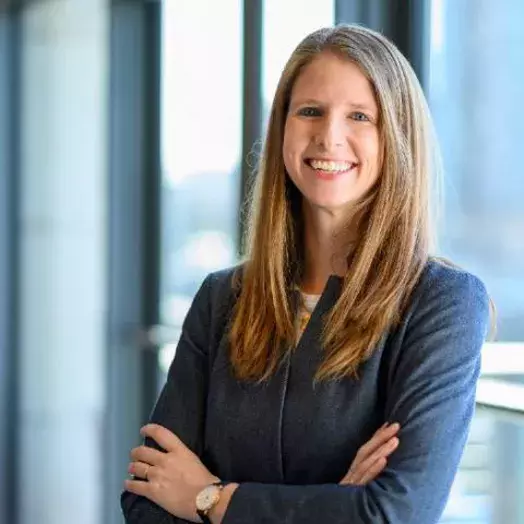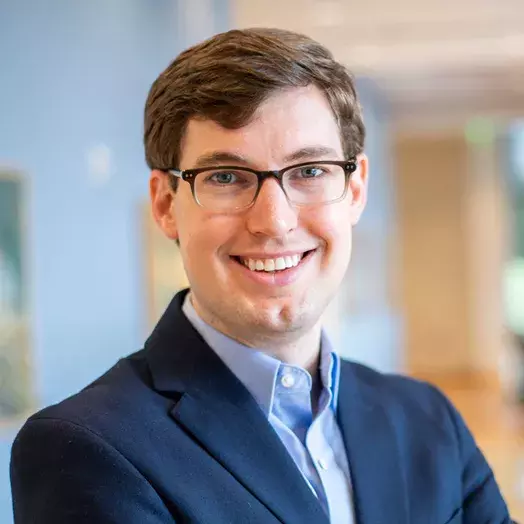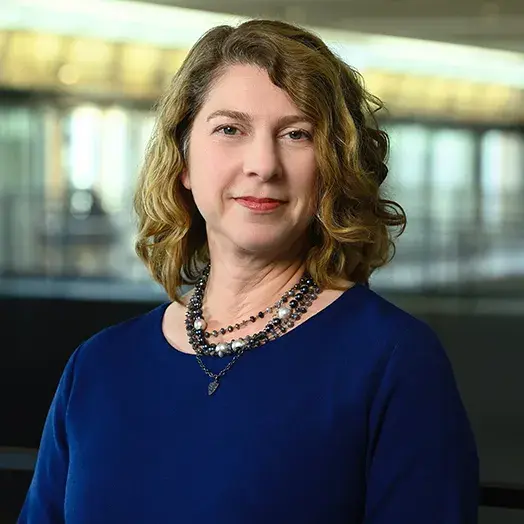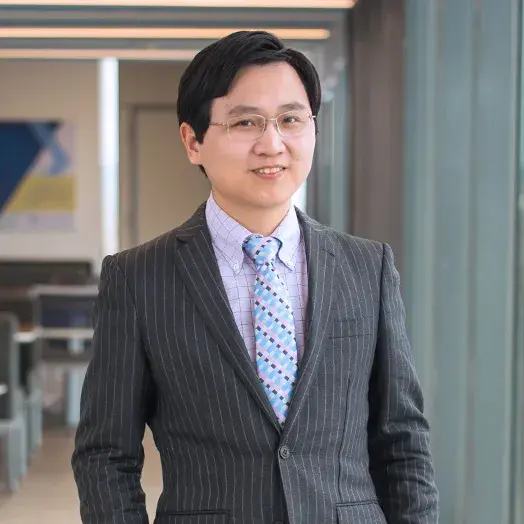Assistant Professor Anna Mayo, named to the Carey Business School full-time faculty in August 2020, specializes in research that explores the elements of effective collaboration.

All Together Now: New Faculty Member Anna Mayo Makes a Study of Teamwork
What makes a team tick? How does teamwork really work?
Seeking answers to such questions is the career focus of Johns Hopkins Carey Business School Assistant Professor Anna Mayo. One of seven new members of Carey’s full-time faculty, Mayo conducts research on the elements of effective teamwork. She considers, for example, what makes some people work well in a group, especially when they are thrown together to tackle a problem without having clearly defined roles or the comfortable familiarity provided by longstanding relationships.
In the following Q&A, Mayo (PhD in Organizational Behavior and Theory, Carnegie Mellon University) touches on topics that include findings from her research, the reasons she chose to pursue this area of study, the lack of a spirit of unity in American society today, and how the COVID-19 pandemic has affected her work.
QUESTION: Your research has focused on the factors that contribute to effective teamwork. What drew you to that topic? Was there an experience from your life that might have inspired you to follow this path?
Anna Mayo: From a young age I started watching and playing, and fell in love with, team sports. I think at some level I gravitated toward wanting to understand how and why the whole was sometimes greater (and sometimes less!) than the sum of the parts. Later, studying psychology and economics in college, and then working for several years at an association that exposed me to the myriad ways in which our member organizations organized their work, both provided some scaffolding around that initial interest and pointed me to the study of organizational teams.
Share this Article
Would you summarize some of your key findings to date from this research?
A: Much of my research has focused on understanding how teams work and the structures that can support better teamwork. Increasingly, I’ve been interested in teams that don’t have clear or formal structures – they might lack the structure of stability and instead work for short periods, or lack a clear boundary due to fluid membership. One of the key findings emerging is that in these dynamic contexts, there is no time to build relationships, a typical conduit to teamwork. Yet, if team members frame the work as a joint problem and think of others – from other professions and even sectors – as a part of the team, then evidence from my work suggests that orientation can fuel outcomes such as learning and patient care efficiency in interdisciplinary hospital teams, as well as progress in developing a diabetes prevention program in teams whose members span sectors (including members from a health clinic and from a nonprofit organization).
You’ve particularly looked at teamwork within the fields of finance and health care. Why those areas?
A: In both finance and health care, industry knowledge is so expansive that one person cannot know everything, which leads to a need for specialization and thus finding ways to integrate that specialized expertise. This makes both areas great for studying teamwork. Understanding teamwork in health care, in particular, is becoming a real interest of mine. The context is both high-stakes and so dynamic as to provide real challenges to teamwork – consider that strangers frequently come together to save lives. That’s part of the reason that Johns Hopkins is such an exciting place to be able to work.
What to Read Next

research
Even Amid Social Distancing, ‘Vicarious Learning’ Can WorkAt this moment in our nation’s history, ideas such as teamwork, unity, and cooperation appear to be sorely lacking across most social groups. Is there anything you’ve learned in your research that might be applied helpfully to the current discord in the country?
A: We’re facing big and complex problems – problems that I believe require bringing together diverse perspectives and encouraging interdisciplinary thinking to solve. At its core, that means we need teamwork and cooperation. Yet, we know that to be difficult, as you note we are seeing today. Some of my research highlights the need to not only have diverse expertise at the table but to then ensure that the expertise is voiced and used. But our biases about others can get in the way of that. Stepping back to encourage both knowledge sharing and listening to others and working through conflict is a simple lesson, but it’s not easy to accomplish and I think is often overlooked.
The COVID-19 lockdown has thrown many aspects of our society into disarray, including higher education. How has the pandemic affected your work, and how have you dealt with the challenges?
A: As with other organizational scholars, I have had to pause some research activities, such as a study I was starting on teamwork in operating rooms just as the pandemic hit. Luckily, I have been able to continue with other research activities (e.g., survey research conducted via online research platforms, finalizing data analyses and reports of existing data sets). Still, I suspect we will see meaningful and lasting effects of the pandemic on how work is organized, which will make it even more interesting to get back to research in organizational settings.


